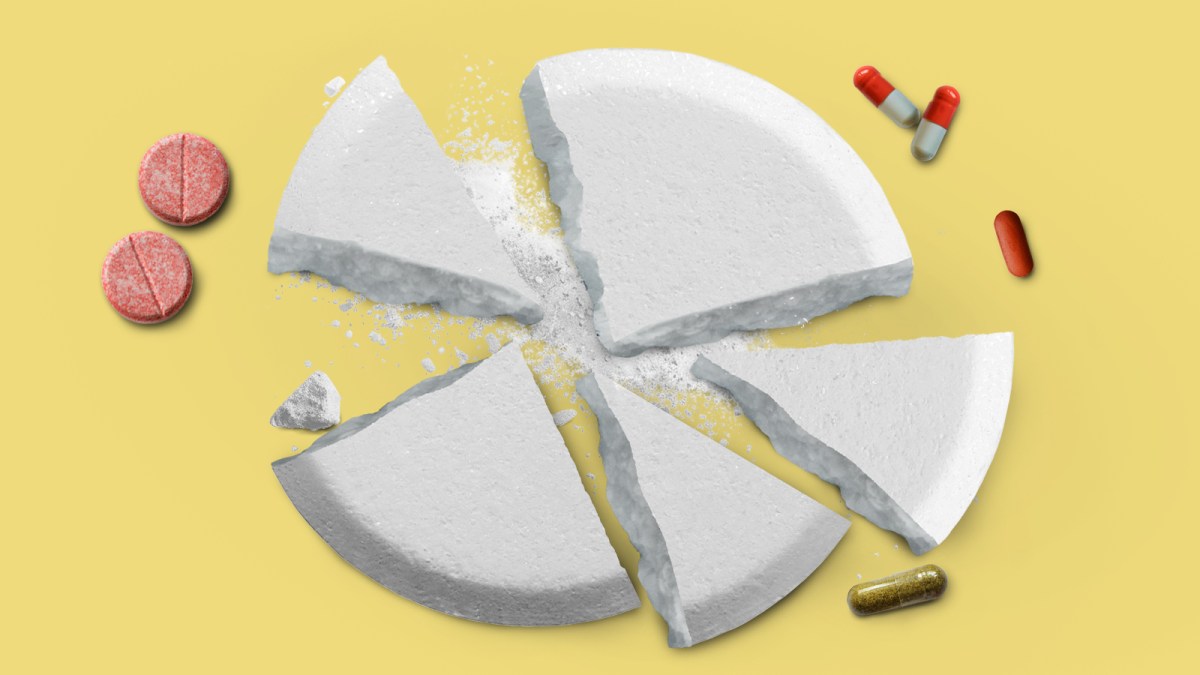In April this year the chief executives of some of the world’s biggest drugmakers began to feel more hopeful about Britain. For months the pharmaceutical industry had been uneasy about the low prices it receives from the NHS and the costs it incurs.
At last the sector’s leaders thought their concerns were being heard. At a roundtable with Sir Keir Starmer, they felt the issue was being grasped. “It felt like there was an increased understanding of why this was a serious problem that should be resolved,” an insider said.
A resolution never came. Talks with the Department of Health and Social Care over NHS pricing came to an end when Wes Streeting, the health secretary, walked out in August, saying the industry was making “unaffordable demands”.
Since then there has been a string of announcements from Big Pharma cancelling or pausing multimillion pound investments in the UK. Some drugmakers argue it is not financially sustainable to sell their most innovative drugs here because of the low prices they can charge compared with other developed nations.
What has caused this stand-off and who will blink first?
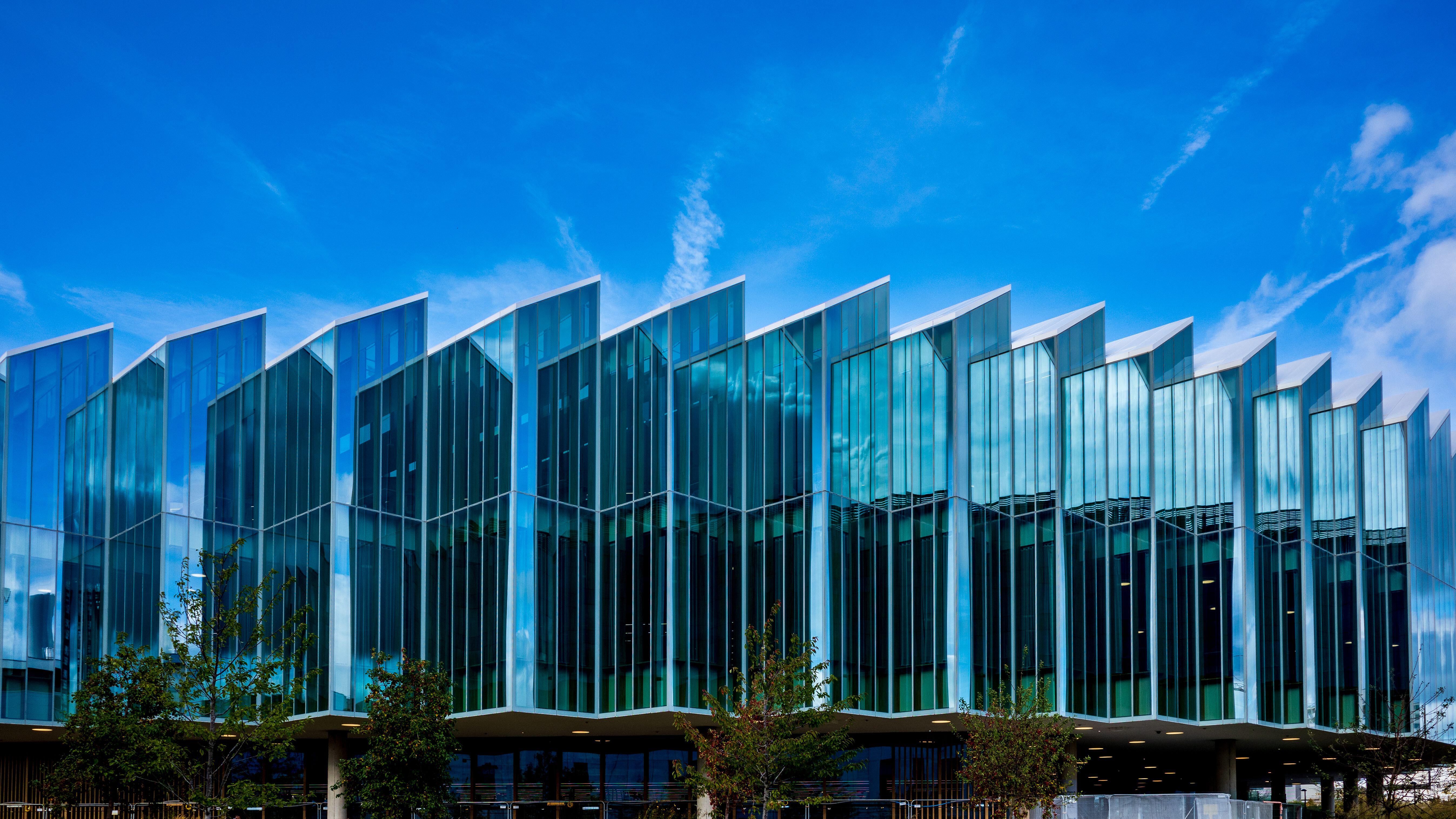
AstraZeneca has put a £200 million investment in its Cambridge research site on hold
ALAMY
The life sciences industry, which is worth £100 billion to the UK economy, claims the crisis has been years in the making. It argues that successive governments have underinvested in life sciences, a sector that, historically, has been a British success story.
Underinvestment ‘is spoiling the UK’s life sciences ambition’
The UK spends less on drugs as a proportion of its healthcare budget than other developed countries. Nine per cent of the NHS budget goes on buying medicines. This is around half that of Spain and Italy (17 per cent) and less than Germany and France (14 and 13 per cent). The Association of the British Pharmaceutical Industry says Britain has also fallen from fourth to tenth place in the rankings for the number of final-stage drug trials being hosted.
David Watson, executive director of patient access at the association, said: “It’s been a gradual government choice to essentially choose to not invest in medicines.
“The life sciences sector is something we’re good at, we’ve got all the fundamentals, such as the right graduates and universities and research centres, but because we don’t spend much on medicines, it is spoiling that ambition.”
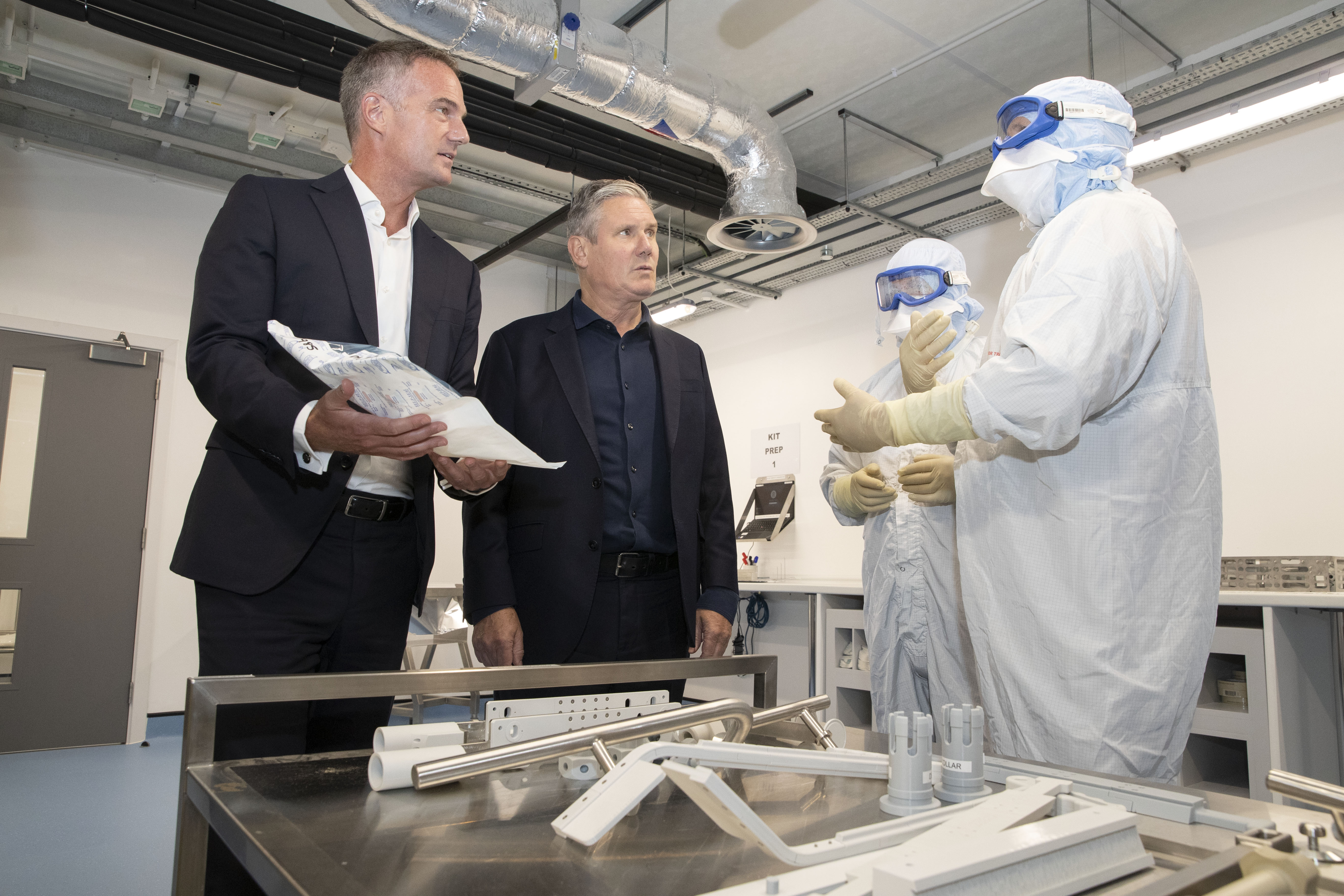
Sir Keir Starmer and Peter Kyle, the innovation secretary, talk to AstraZeneca employees in Macclesfield, Cheshire
JASON ROBERTS/GETTY IMAGES
Big Pharma’s ire has coalesced around the system used to calculate how much the NHS pays for new drugs and medicines.
In 2023 the industry and the Conservative government struck a five-year agreement called Vpag, the voluntary scheme for branded medicines pricing. This was a continuation of earlier deals that cap the total amount the NHS pays for new drugs and medicines. If the NHS spends more, companies pay back some of the difference as a rebate.
But the forecast of how many drugs the NHS would buy were wildly off. Whereas previously the industry paid back 6.8 per cent of its revenue via the rebate, the figure has shot up to 22.9 per cent. The forecast under Vpag was for it to hit 15 per cent in 2024 then go back down.
It is unclear why the rebate has soared but one theory is that more effective new medicines came onto the market than expected while the NHS also received more funding than anticipated when the deal was made in 2023, but with no corresponding rise allowed for medicine spending. Industry repayments soared to £2.5 billion in 2024 and are on course to reach £3.4 billion this year as NHS spending on medicines exceeds £14 billion.
“The system has basically become a revenue raiser for the Treasury,” an industry insider said. “The gap between what the government wants and how much it costs the industry is ratcheting up alarmingly now.”
The counterview, though, is that the NHS’s collective bargaining means it has been extremely effective on behalf of the taxpayer in driving down prices.
The talks between Streeting and the drugmakers remain confidential but he has said the deal would have “reduced payment rates for pharma companies year on year, freeing approximately £1 billion over three years for new, life-changing medicines”.
The health department said: “We will always put patients and taxpayers first, encouraging investment and innovation while ensuring best value for money. Having made an unprecedented £1 billion Vpag offer to industry, our door remains open to future engagement.”
Astra Zeneca’s move on to NYSE is worrying for the City
Companies are changing investment plans because they believe the UK is becoming less of a viable market for new drugs.
AstraZeneca, Britain’s most valuable public company, has paused a £200 million investment in its Cambridge research site. This came after it scrapped plans for a £450 million investment in its vaccines site in the Liverpool suburb of Speke, blaming cuts in government support.
The drugmaker last week it announced plans to list its shares directly on the New York stock exchange, while keeping its shares on the London market.
Some in the City believe this move is related to Astra’s desire to seek a higher valuation in America, while giving it the option to pursue deals that use shares as part-payment. However any further move away from London would be devastating for the City.
Meanwhile, the US drugs group Merck has pulled a £1 billion investment in a new London research centre, while Eli Lilly, one of the world’s biggest drugs companies, paused part of a planned investment in a biotech innovation accelerator hub in the capital.
Johan Kahlström, the president of Novartis UK, said it was “very difficult for global boardrooms to justify investments in the UK”, while Guy Oliver, the UK head of the global pharmaceutical giant Bristol Myers Squibb (BMS), said “chronic underinvestment” in medicines meant his company had no choice but to cut hundreds of UK jobs and end drug trials and partnerships with the NHS.
Trump says the world ‘must stop freeloading’ on American innovation
Big Pharma’s unhappiness with the UK comes as the sector is under intense pressure from America. In May, President Trump accused drugmakers of deeply discounting their products in foreign markets while subsidising that through very high prices in the US.
He has demanded Britain and other countries pay more for medicines to end “freeloading on US innovation”. He has held the threat of tariffs over companies if they do not boost manufacturing in the US.
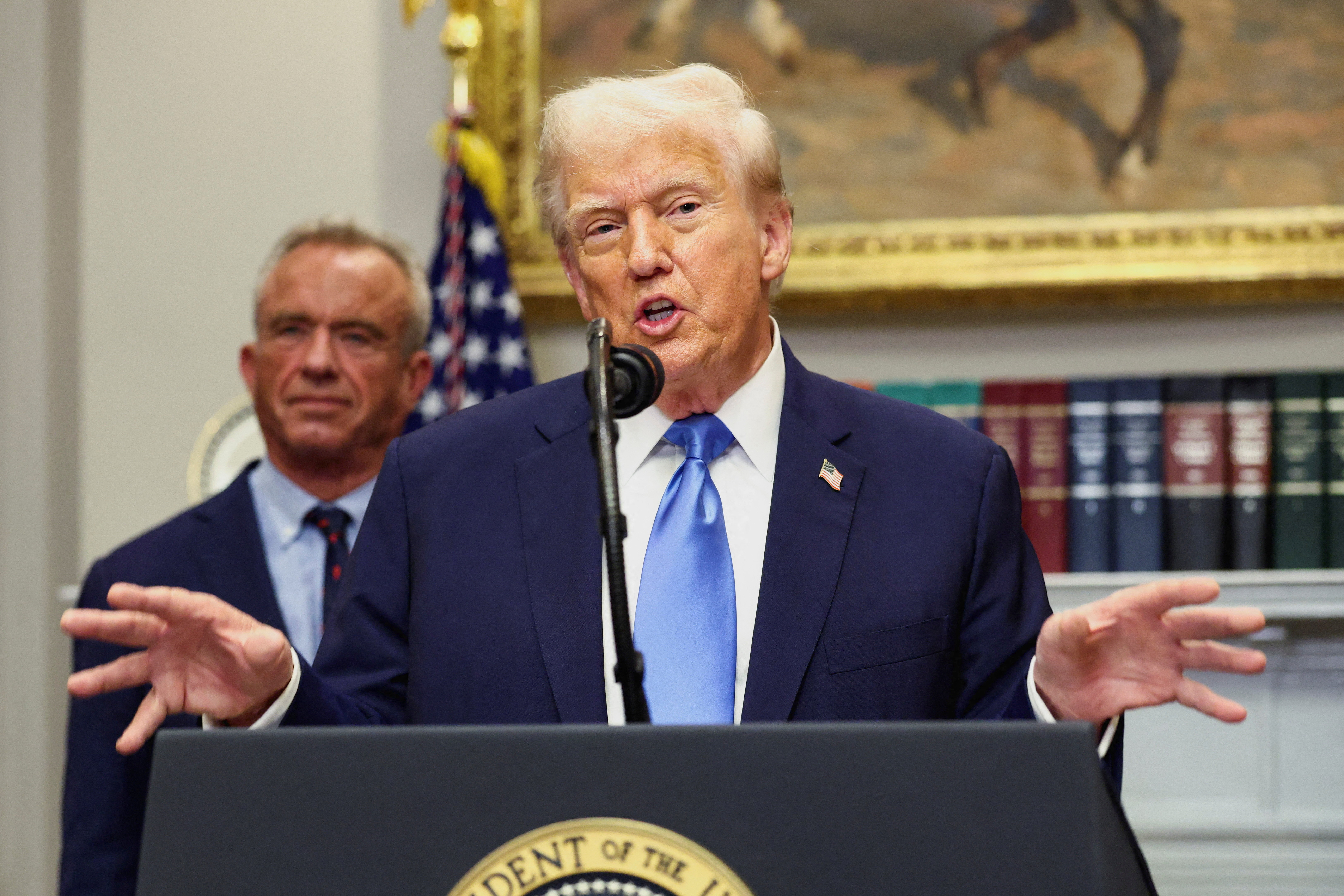
President Trump is demanding that the pharmaceutical industry switch more manufacturing to the US
KEVIN LAMARQUE/REUTERS
Since then several drugmakers have prioritised funding in the US. They include AstraZeneca, which announced a $50 billion investment in the US by 2030, and GSK, which last month declared it would put $30 billion into American manufacturing.
Dame Emma Walmsley, the chief executive of GSK, who announced last week that she would be stepping down, hailed the investment as “further bolstering the already strong R&D and supply chain we have in the [US]”.
Trump wants pharma groups to offer the same low prices they agree in other countries to American consumers. In this context the NHS success at driving down prices poses a problem for Big Pharma. It cannot afford to offer such low prices in America so it is under pressure to renegotiate them upwards in Britain. There is pressure on the UK government too, which is desperate to keep Trump on side.
Some believe we need a review of NHS prices sooner not later
Whitehall seems to believe that something has to give and that the government will have to concede ground on pricing.
Last week Varun Chandra, Starmer’s chief business adviser, flew to Washington for talks with senior US officials on drugs pricing.
This followed comments from Lord Vallance of Balham, the science minister who was the government’s chief scientific adviser during the pandemic. He warned last month that the NHS would have to spend more on medicines to maintain Britain’s place as a world leader in life sciences — even at the cost of other areas of care.
“These are all trade-offs and the trade-off that’s been made for the past decade is a lower percentage on medicines. We’re reaping the consequences of that now in a very urgent way. And that’s what we need to now address,” Vallance told the House of Lords last month.
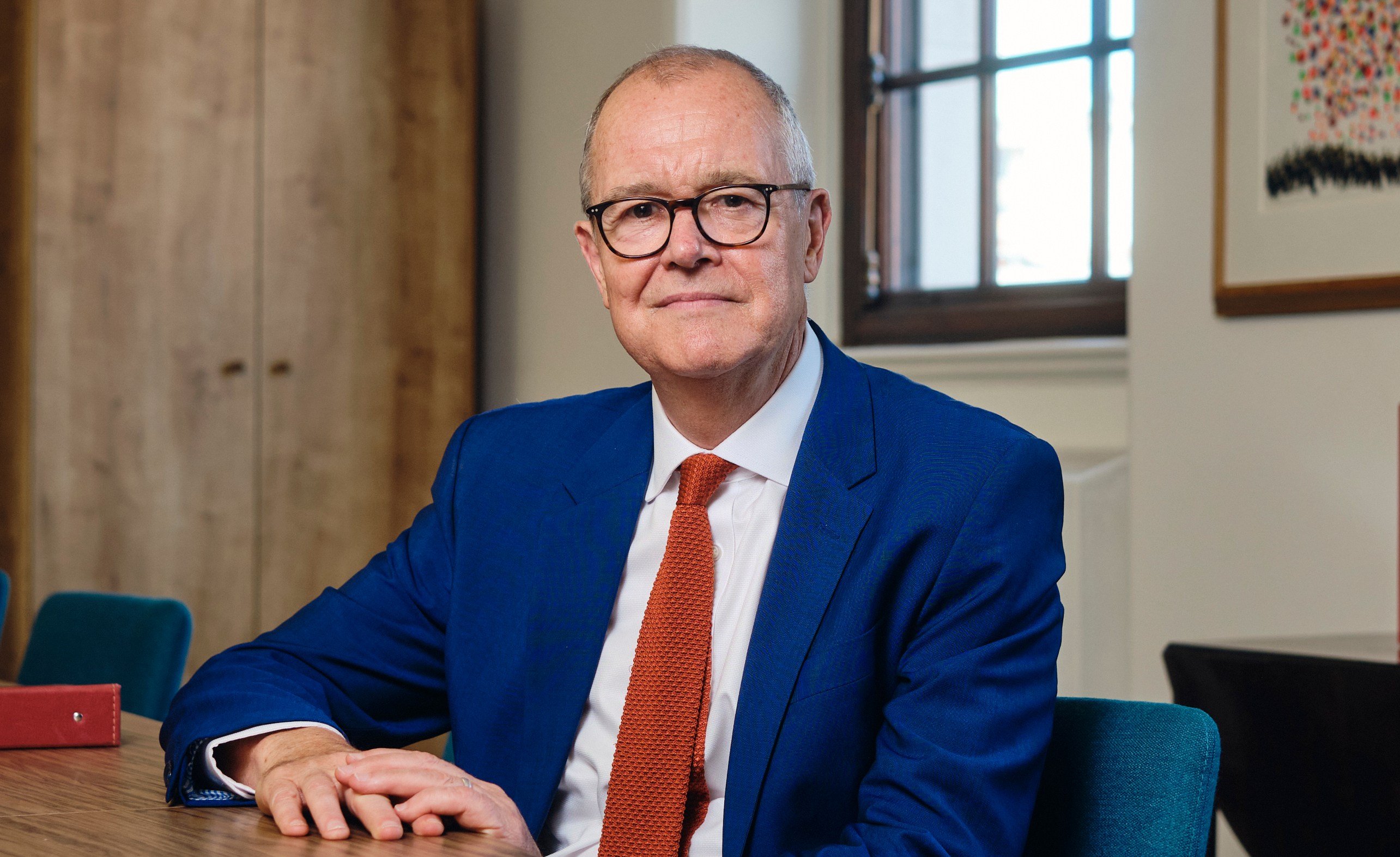
Lord Vallance of Balham says the NHS will have to spend more of its budget on medicines to maintain Britain’s place as a world leader in life sciences
CHRISTOPHER L PROCTOR FOR THE TIMES
Some in government seem to acknowledge that a broad renegotiation of NHS prices is needed sooner rather than later. Such is the pressure from the US, this could come before a revised agreement on Vpag. One Whitehall source suggested Vpag was merely “an annoying symbol of a broader problem”.
They said: “Vpag was the straw that broke the camel’s back … but we need to fix problems in the round.” Any move on NHS pricing would need to be “meaningful”, they added. “The industry won’t accept anything too piecemeal.”
Other solutions being studied across government are thought to include ways to speed up clinical trials in the UK and how to improve the take-up of new medicines, where Britain trails behind some European peers.
While talks drag on, there was one piece of good news for the life sciences sector last week.
Convatec, a FTSE 100 company that sells medical products, announced on Friday that it would invest £500 million in the UK, including a new R&D hub in Manchester, while also putting $600 million into the US. Ministers will be hoping that if a deal can be struck with on drugs prices, there will be more money flowing into the UK, instead of out.

